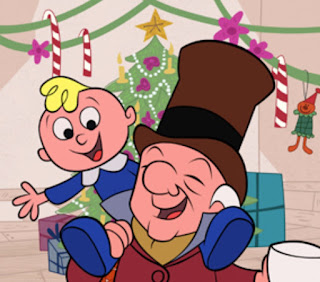By Michael Lyons
Ah, the end of the year, a time to reflect. For many, this means looking back over life’s accomplishments, challenges, joys and tears.
For film buffs, reflection may not delve this deep, but instead is focused on: “What were my favorite films of the year? My top 10!” Additionally, Film Buffs also love Anniversaries and will also think back on some of their film favorites that reached major milestones.
And so, as the year closes, here’s a look back at some movies that celebrated anniversaries in 2017.
While the list of movies commemorating an anniversary could probably initiate a series of blogs and many that have been celebrated are award winners or box office blockbusters, the list below focuses on some forgotten films, that celebrated this past year and are worth celebrating themselves:
The 10th anniversary of “Meet the Robinsons” (released March 30, 2007)
The word “Underrated” seems to have been created for this film. An earnest, heartfelt gem from Walt Disney Feature Animation, the film is based on the book “A Day with Wilbur Robinson” and tells the tale of young orphan named Lewis, who finds himself caught up in a dizzying, time travel search for his parents.
In world of familiar (particularly in animation) “Meet the Robinsons” is a true original that keeps the audience guessing and engaged through a breakneck plot that ends on such an emotional note, you can’t help but keep the film with you long after it ends.
The 15th anniversary of “Treasure Planet” (released November 27, 2002)
If one isn’t using the word “Underrated” for “Meet the Robinsons,” they may want to apply it to another Disney animated feature, “Treasure Planet.” Directors Ron Clements and Jon Musker, who have navigated Disney animation through many changes with films such as “Aladdin” to “Moana,” worked long and hard on this labor of love; a sci-fi adaptation of Robert Louis Stevenson’s “Treasure Island.”
Feeling both comfortable and innovative, “Treasure Planet” works as a sci-fi, action adventure yarn (with some creative creatures and settings) and as an impressive character piece (the relationship between Jim Hawkins and Long John Silver is animation movie magic).
“Treasure Planet” didn’t fare well at the box-office when released over Thanksgiving weekend of 2002, but deserves the ever growing audience of admirers its gained since then.
The 30th anniversary of “Innerspace” (released July 1st, 1987)
Released over July 4th weekend of 1987, summer movies don’t get more popcorn-fun than “Innerspace.” Produced by Steven Spielberg and directed by Joe (“Gremlins”) Dante, “Innerspace” tells the tale of a test pilot (Dennis Quaid) who is shrunken and accidentally injected into an unsuspecting simpleton (Martin Short).
A frenetic and funny take on “Fantastic Voyage,” “Innerspace” has some hysterical moments (most courtesy of Short) and amazing special effects (for which the film won an Oscar). Best of all, Quaid and Short have great chemistry... and are in almost no scenes together. “Innerspace” is, literally, a small wonder!
The 35th anniversary of “Night Shift” (released July 30, 1982)
Two guys operating a prostitution ring out of the city morgue may sound like fodder for a Martin Scorcese drama, but “Night Shift” is a comedy and a really funny one at that.
Director Ron Howard’s first major studio film, “Night Shift” stars Henry Winkler and Michael Keaton (absolutely hysterical) as the mis-matched co-workers who become the unlikeliest of pimps. Smart writing and sharp timing, “Night Shift” may be low-class subject matter, but it’s a high-class comedy.
The 40th anniversary of “Rollercoaster” (released June 10, 1977)
George Segal delivers a solid performance as a safety inspector on the hells of a terrorist (Timothy Bottoms) who is making his way through the country’s theme parks planting bombs on roller coasters.
Released using the ‘70’s fad of “Sensurround,” a sound system that amped up the bass and replicated the sensation of being on a rollercoaster for theater audiences, “Rollercoaster” is more than a movie gimmick, it’s a tense, well-crafted thriller.
The 75th Anniversary of “The Man Who Came to Dinner” (released January 1, 1942)
If you missed watching this gem over the holiday season, put it on your list for next December. Based on a popular stage play of the time, the film tells the story of cultured radio personality, Sheridan Whiteside (Monty Woolley from “The Bishop’s Wife,” so good here), who slips on a family’s icy front stoop while visiting a small Ohio town during a lecture tour, just before the holidays. Sheridan then winds up having to recuperate with the family during Christmas.
What follows is a witty clash of cultures that’s as funny and endearing as vintage, Hollywood black and white gets. With solid supporting performances from Bette Davis, Jimmy Durante and Billie Burke (Glinda the Good Witch from “The Wizard of Oz”), “The Man who Came to Dinner” is a glowing Christmas movie classic.
So, as 2017 closes out and the winter days ahead are filled with movie marathons, consider visiting or re-visiting these often forgotten films, that deserve to not just be remembered, but celebrated as well.
Wishing you and yours a very Happy and Healthy New Year!
Sources: Wikipedia
IMDb










